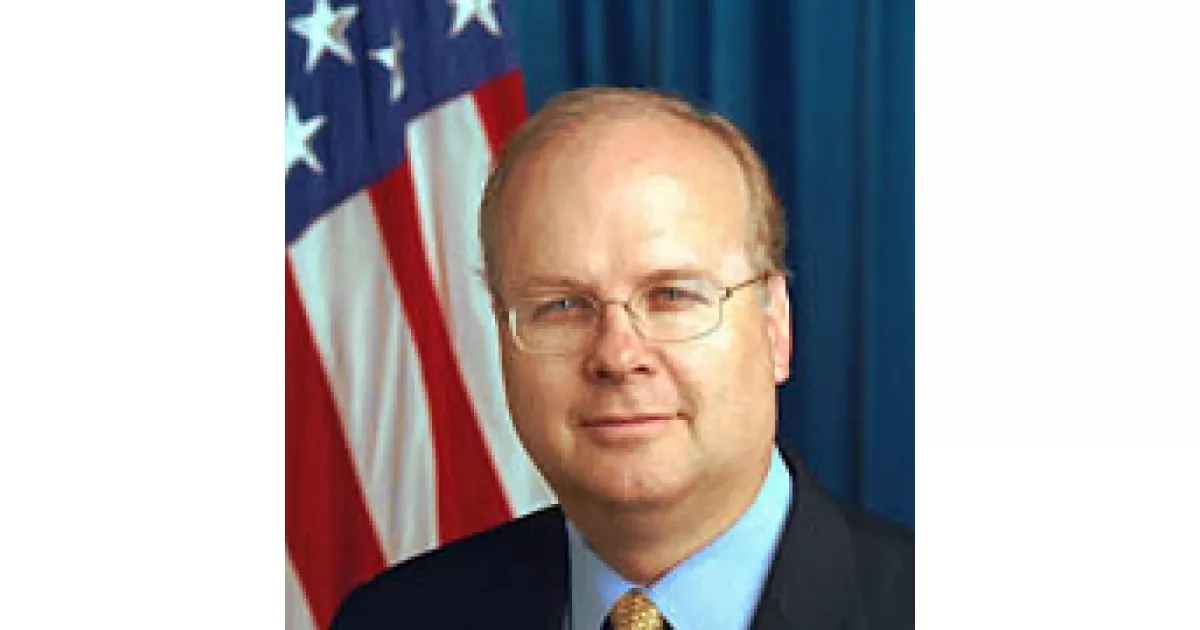Discover the career path of Karl Rove, from the first major opportunity to industry-changing achievements.
Karl Rove is an American Republican political consultant, policy advisor, and lobbyist notable for his influential role in Republican politics. He served as Senior Advisor and Deputy Chief of Staff during George W. Bush's presidency until 2007. Rove also directed key White House offices, including Political Affairs and Strategic Initiatives. He is recognized as one of the architects of the Iraq War due to his influential role in the Bush administration's decision-making process.
September 6, 1973: Bush Chooses Rove as Chairman of the College Republicans
On September 6, 1973, George H. W. Bush chose Karl Rove to be chairman of the College Republicans, following an investigation into allegations against Rove. Bush wrote Edgeworth a letter saying that he had concluded that Rove had fairly won the vote at the convention.
1977: Hired by George H.W. Bush
In 1977, George H. W. Bush hired Rove as the first person for his 1980 presidential campaign.
1978: Advising Bush's Congressional Campaign
In 1978, Rove advised the younger George W. Bush during his unsuccessful Texas congressional campaign.
1980: Bush as Vice-Presidential Nominee
In 1980, George H. W. Bush's presidential campaign ended with Bush as the vice-presidential nominee.
1982: Phil Gramm Elected to U.S. House
In 1982, Phil Gramm was elected to the U.S. House of Representatives as a conservative Texas Democrat.
1982: Assisting Bill Clements' Reelection Campaign
In 1982, Rove assisted Governor Bill Clements in his run for reelection, but Clements was defeated by Democrat Mark White.
1983: Gramm becomes a Republican
In 1983, Phil Gramm became a Republican.
1984: Helping Gramm Win U.S. Senate Seat
In 1984, Rove helped Gramm, who had become a Republican in 1983, defeat Republican Ron Paul in the primary and Democrat Lloyd Doggett in the race for U.S. Senate.
November 1988: "Clean Slate '88" campaign.
In November 1988, Phillips' election was part of "Clean Slate '88", a campaign that was successful in getting five of its six candidates elected.
1989: Encouraging Bush to Run for Governor
In 1989, Rove encouraged George W. Bush to run for Texas governor, provided policy tutoring, and introduced him to reporters. Bush eventually declined, and Rove backed another Republican who lost in the primary.
1990: Other Rove Candidates Win
In 1990, two other Rove candidates won: Rick Perry became agricultural commissioner, and Kay Bailey Hutchison became state treasurer.
1991: Advising Philip Morris
In 1991, Karl Rove began advising the tobacco giant Philip Morris, earning $3,000 a month through a consulting contract.
1991: Sued Thornburgh for Non-Payment
In 1991, Rove sued Dick Thornburgh for non-payment for services rendered during the Senate campaign. Despite pressure from the RNC and an amicus brief written by Kenneth Starr, Rove prevailed in court.
1991: Working on Thornburgh's Senate Campaign
In 1991, Rove's company worked for Dick Thornburgh's Senate campaign in Pennsylvania, which ended in an upset loss to Democrat Harris Wofford after John Heinz's death.
1992: Managing Florence Shapiro's Campaign
In 1992, Rove managed Florence Shapiro's campaign for District 2 in the Texas Senate, marked by a hotly-contested election and vandalism due to Shapiro's faith.
1992: Fired from Bush Presidential Campaign
In 1992, Rove was fired from the Bush presidential campaign for allegedly leaking a negative story to Robert Novak about campaign fundraising chief Robert Mosbacher Jr. Rove apparently confirmed his involvement with Novak during testimony before the CIA leak grand jury.
June 1993: Hutchison Wins Senate Election
In June 1993, Rove helped Kay Bailey Hutchison win a special Senate election, defeating Democrat Bob Krueger to fill the last two years of Lloyd Bentsen's term.
November 1993: Rove Advising Bush
In November 1993, Rove began advising George W. Bush in his campaign to become governor of Texas, after Bush announced his candidacy.
1993: Consulting fees by Ashcroft's Senate campaign
In 1993, Karl Rove & Company was paid for consulting by John Ashcroft's Senate campaign.
1993: Kay Bailey Hutchison senatorial campaign
In 1993, Karl Rove worked on the senatorial campaign for Kay Bailey Hutchison
January 1994: Bush's Campaign Spending
In January 1994, George W. Bush had spent more than $600,000 on the race against incumbent Democrat Ann Richards, with $340,000 of that paid to Rove's firm.
1994: Consulting fees by Ashcroft's Senate campaign
In 1994, Karl Rove & Company was paid $300,000 in consulting fees by John Ashcroft's successful Senate campaign.
1994: Alabama Supreme Court races
In 1994, Karl Rove was involved with the Alabama Supreme Court races.
1994: George W. Bush gubernatorial campaign
In 1994, Karl Rove was involved with the George W. Bush gubernatorial campaign.
1994: John Ashcroft senatorial campaign
In 1994, Karl Rove was involved with the John Ashcroft senatorial campaign.
1994: Alabama Supreme Court Election Involvement
In 1994, Rove was hired by the Business Council of Alabama to help run a slate of Republican candidates for the state supreme court, resulting in a court battle over absentee ballots that ended with a Republican candidate winning by 262 votes.
1996: Severing ties with Philip Morris
In 1996, Rove severed his consulting tie with Philip Morris due to feeling awkward about balancing his role as Bush's top political advisor while Bush was governor of Texas and Texas was suing the tobacco industry.
December 1998: Payments to Rove & Co. and Praxis List Company
From July through December 1998, George W. Bush's reelection committee paid Rove & Co. nearly $2.5 million and the Rove-owned Praxis List Company $267,000 for mailing lists. About 30% of the $2.5 million was for postage.
1998: Republicans held all nine seats on the Court
By 1998, Republicans held all nine seats on the Texas Supreme Court.
1998: George W. Bush gubernatorial campaign
In 1998, Karl Rove was an adviser for Bush's re-election campaign.
March 1999: Bush's Campaign Finances
As of March 1999, George W. Bush raised $17.7 million for his reelection campaign, with $3.4 million unspent.
1999: Selling Karl Rove & Co.
In early 1999, Rove sold his direct-mail business, Karl Rove & Co., and Praxis List Company to Ted Delisi and Todd Olsen, political operatives. The sale was a condition set by George W. Bush before Rove became chief strategist for Bush's presidential bid.
2000: Harold See campaign for Chief Justice
In 2000, Karl Rove was involved in Harold See's campaign for Chief Justice
January 2001: Appointment as Senior Advisor
In January 2001, Rove accepted an appointment as Senior Advisor to President George W. Bush.
November 2004: Bush Thanks Rove
In a November 2004 speech, President George W. Bush publicly thanked Rove, calling him "the architect" of his victory over John Kerry in the 2004 presidential election.
April 2006: Reassignment to Strategic Planning
In April 2006, Rove was reassigned from his policy development role to one focusing on strategic and tactical planning in anticipation of the November 2006 congressional elections.
October 24, 2006: Rove Forecasts Republican Victory
On October 24, 2006, Karl Rove insisted that his insider polling data indicated that Republicans would retain both houses of Congress. Despite his forecast, the Democrats won both houses in the subsequent election.
November 2006: Congressional Elections
In November 2006, Karl Rove was focusing on strategic and tactical planning for the congressional elections.
August 31, 2007: Resignation from the Bush Administration
On August 31, 2007, Karl Rove resigned from his position as Senior Advisor and Deputy Chief of Staff during the George W. Bush administration.
July 2008: Rove Defends Role at Fox News
In July 2008, Karl Rove defended his role as an analyst for Fox News' election coverage to the Television Critics Association.
November 2008: Fox News Election Coverage
In November 2008, Karl Rove provided analysis for Fox News during the network's election coverage.
2008: Rove Hired by News Outlets and Advises McCain
In 2008, Karl Rove was hired to write about the presidential election for Newsweek. He was also hired as a contributor for The Wall Street Journal and a political analyst for Fox News. Additionally, Rove was an informal advisor to John McCain's presidential campaign.
March 2010: Rove's Memoir Published
In March 2010, Karl Rove's memoir, Courage and Consequence, was published. It received a critical review from Dana Milbank of The Washington Post.
2010: Rove Co-Founds American Crossroads
In 2010, Karl Rove, with Ed Gillespie, helped found American Crossroads, a Republican 527 organization to raise money for the 2012 election effort. Rove served as an informal advisor.
December 15, 2011: Rove Profiled in The New Republic
On December 15, 2011, The New Republic published a profile of Karl Rove, describing him as adept at exploiting the political climate after the Supreme Court's Citizens United decision through his involvement with American Crossroads.
November 6, 2012: Rove Protests Fox News' Election Call
On November 6, 2012, Karl Rove contested Fox News' call of the 2012 presidential election for Barack Obama, leading to a tense exchange with Megyn Kelly.
2012: American Crossroads fund raising for election
In 2012, Karl Rove's Super-PAC, American Crossroads, raised funds for the election.
2013: Rove Creates Conservative Victory Project
In 2013, Karl Rove and American Crossroads created the Conservative Victory Project to support electable conservative candidates. This effort drew criticism from within the Tea Party movement.
2015: Rove's History Book Published
In 2015, Karl Rove's history book, The Triumph of William McKinley: Why the Election of 1896 Still Matters, was published.
2017: One Nation nonprofit raised money
In 2017, Karl Rove's 501(c)(4) dark money group One Nation nonprofit raised nearly $17 million.
December 2019: Rove Predicts Contested Democratic Convention
In December 2019, Karl Rove predicted that the 2020 Democratic Party presidential primaries would result in a contested convention.
December 2020: Politico Calls Rove's Prediction Incorrect
In December 2020, after Joe Biden was nominated at the 2020 Democratic National Convention with a clear majority of delegates, Politico named Karl Rove's prediction of a contested convention one of "the most audacious, confident and spectacularly incorrect prognostications about the year".
Mentioned in this timeline

Barack Obama the th U S President - was the...
Fox News Channel FNC is a conservative American news and...

George W Bush the rd U S President - is...
The United States of America is a federal republic located...

Joe Biden is an American politician who served as the...

The White House located at Pennsylvania Avenue NW in Washington...
Trending

38 minutes ago Warriors face play-in, Curry's injury raises concerns, Kerr lowers expectations, Moody's role?
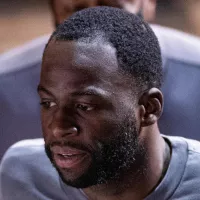
38 minutes ago Stephen A. Smith criticizes Draymond Green's comments on Nico Harrison as unfair.

39 minutes ago Kris Dunn Recovered From Injury, Briefly Exited Game After Elbow Contact
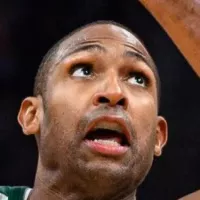
39 minutes ago Al Horford's Role Shifts: Back to Starting Lineup, Then Bench, Mindset Revealed.
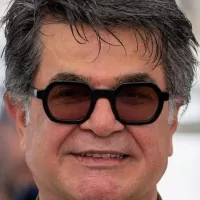
2 hours ago Jafar Panahi faces restrictions, continues filmmaking despite adversity and imprisonment in Iran.
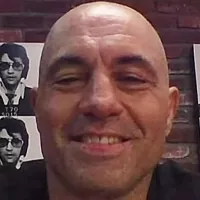
2 hours ago Joe Rogan Interviews RFK Jr. on Trump's ICE Raids and US Taxpayer Losses.
Popular

Jesse Jackson is an American civil rights activist politician and...

Hillary Diane Rodham Clinton is a prominent American politician lawyer...

Jim Carrey is a Canadian-American actor and comedian celebrated for...

XXXTentacion born Jahseh Dwayne Ricardo Onfroy was a controversial yet...

Michael Joseph Jackson the King of Pop was a highly...

Kashyap Pramod Patel is an American lawyer who became the...
